Categorical Medicine
Categorical Medicine Highlights Heading link
-
Program Highlights
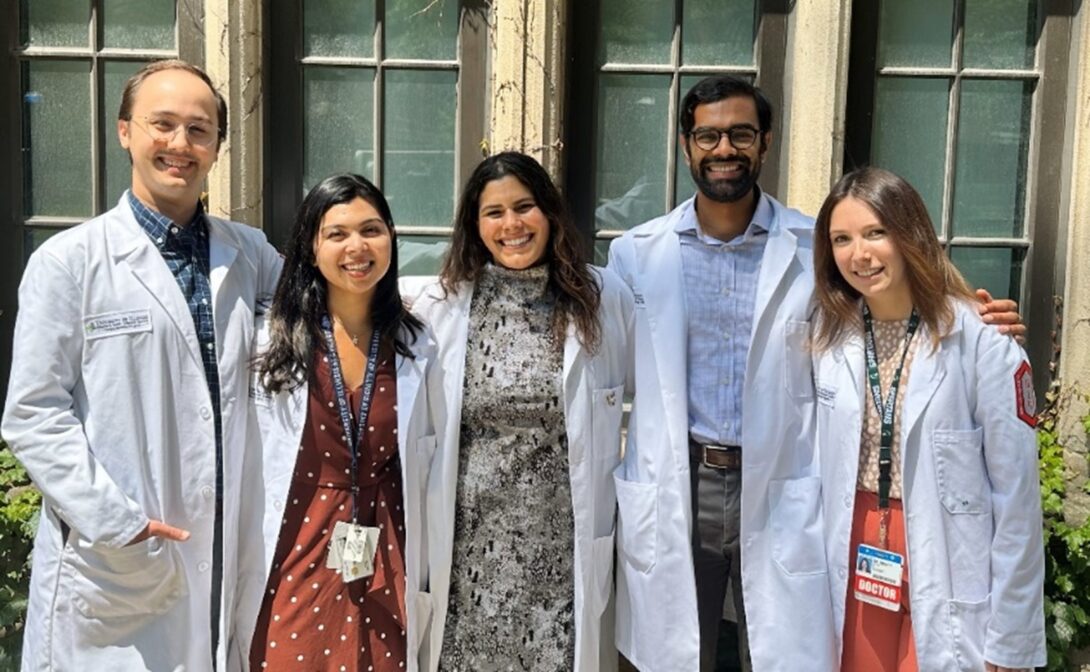
The Department of Medicine at the University of Illinois Chicago has a 60-year tradition of providing thorough and comprehensive training in Internal Medicine. Our goal is to prepare future physicians for a wide range of career paths, including careers in academic internal medicine, primary care, and subspecialty clinical practice. We also are committed to an education-packed year for our preliminary residents to assist them in having excellent performance in their specialty programs. We do so with an eye toward the changing health care environment and the increasing demands upon physicians to be both evidence-based and humanistic in their approach to clinical decision-making.
Structure
Size: We are one of 48 “large” (>100 residents) internal medicine residencies in the country with 114 residents in the Categorical and Preliminary Programs, plus 16 Medicine/Pediatrics, and 15 Internal Medicine/Emergency Medicine residents for a total of 145 trainees. This number of housestaff allows us great flexibility in scheduling requested rotations, vacations, family leave, and wellness days.
Program Leadership: There is a deep bench of dedicated and experienced clinicians, educators and researchers leading the program, including our Department Chair, Department Vice Chair, Program Director, Deputy Program Director, Senior Associate Program Director, ten additional Associate Program Directors, and five Chief Residents.
Chief Residents: We annually recruit five residents who have completed training in our program to stay on for an additional year as faculty and administrative leaders. They each are dedicated to distinct aspects of the program: University of Illinois Hospital, Jesse Brown VA Hospital, Research and Education, Ambulatory training, and Quality and Patient Safety.
Faculty: Residents are supervised by over 200 full-time faculty who are only affiliated with the UIC Department of Medicine. Our faculty teach and provide patient care, which allows them to concentrate their efforts on residency mentorship, research, and education. Faculty are evaluated by the housestaff on their teaching abilities monthly to assure they remain excellent educators.
X+Y Format: We have a 4+2 system for senior residents with 4 weeks of inpatient or consult rotations followed by 2 weeks of a Y-block which features continuity clinics at UIH and the Jesse Brown VA, longitudinal electives, research half-days and administrative protected time. The Y-block also features a robust ambulatory medicine focused didactic schedule.
Training Sites: Residents rotate at the University of Illinois Hospital & Health Sciences System (UIH) and the Jesse Brown VA (JBVA), and both have inpatient medicine services and continuity clinics. They are only three blocks away from each other and conveniently located steps away from public transportation by train or bus. Both sites serve a diverse and underserved patient population that are representative of Chicago. UIH cares for everyone in the community regardless of ability to pay, with ~50% of patients with Medicaid or without insurance, 25% on Medicare, and only the remainder have private insurance. The JBVA provides free care to veterans that have served our country and are often from under-resourced communities.
Multidisciplinary Teams: Care teams consist of a wide range of health care professionals including social workers, discharge planners, pharmacists, pharmacy residents and students, medical students and advanced practice nursing students.
Specialized Tracks: We offer dedicated tracks for Academic Internal Medicine, Global Health Advocates and Scholars, Leaders for Local Change, and Medical Education. We are also the first medicine residency in the country to sponsor an Innovation in Internal Medicine track. In addition, we offer a Physician Scientist Development Program that guarantees trainees a fellowship of their desire after two years in the Categorical program, and a Stimulating Access to Research in Residency (StARR) program for an internal medicine resident to complete a PGY4 year of 80% clinical research and 20% patient care and teaching.
Preliminary Year: Our Preliminary PGY-1s enjoy the same number of electives and opportunities as the Categorical residents with the exception that they do not have a continuity clinic. However, if desired, Preliminary residents can participate in non-Internal Medicine subspecialty clinics (e.g., Dermatology, Ophthalmology).
-
Hospital Medicine
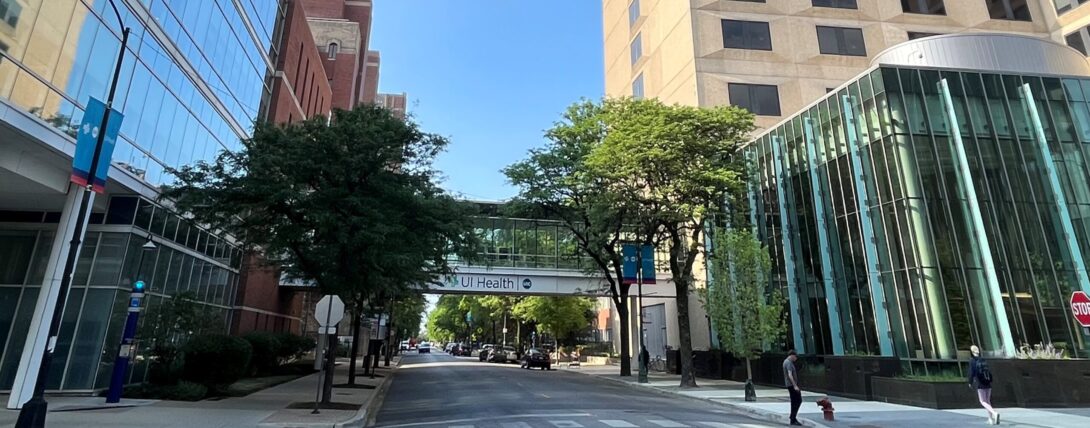
University of Illinois Hospital
About 60% of inpatient experience is at the 440-bed tertiary care hospital. Ward rotations include General Internal Medicine (5 teams), Hepatology, Hematology, Oncology, Sickle Cell, Infectious Diseases, Cardiology and Cardiac Care Unit, Medical Intensive Care Unit, Neurology, and Hospital Medicine/Procedure Service. Consultative rotations include Rheumatology, Endocrinology, Nephrology, Infectious Diseases, Pulmonary, Cardiology, Allergy/Immunology, Transplant Infectious Diseases, Transplant Nephrology, Gastroenterology/Hepatology, Addiction Medicine, Geriatrics, and Palliative Care.
Jesse Brown VA
About 40% of inpatient experience is at the 200-bed VA hospital. Rotations include General Internal Medicine (5 teams), Medical Intensive Care Unit, and Emergency Medicine. Consultative rotations include Pulmonary, Nephrology, Infectious Diseases, Gastroenterology, and Cardiology.
-
Research and Education
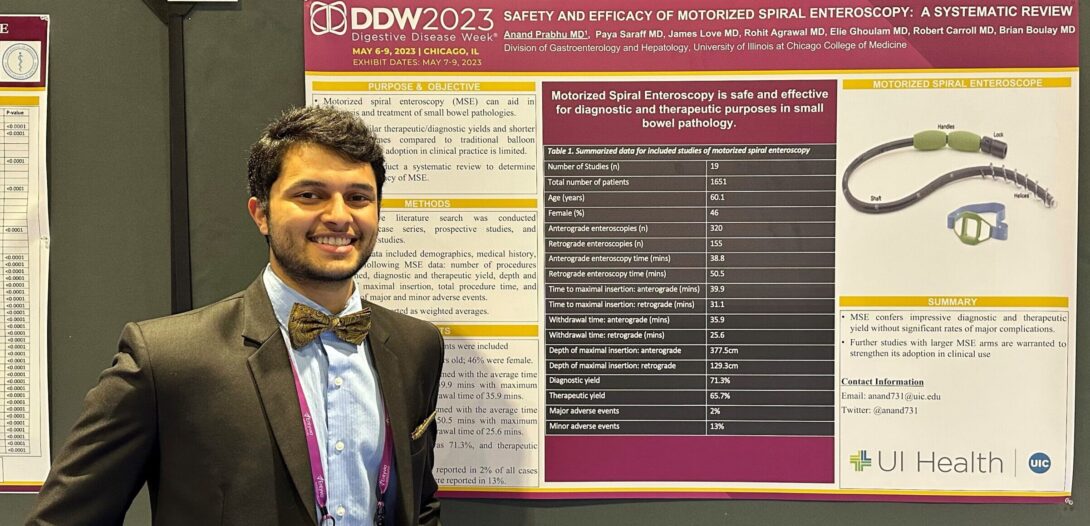
- Daily Conferences: There is protected educational time every weekday from 12:00pm to 1:00pm.
- Quarterly Journal Club: Faculty host an informal journal club at an offsite location, typically their home. Dinner is provided.
- Scholarly Activity and Conference Funding: All residents participate in scholarly activity, ranging from case reports, basic science, translational, and clinical research that result in posters, abstracts, and published manuscripts. One of our Chief Residents and Associate Program Directors is dedicated to this productivity. Residents receive funding for poster creation, airfare, registration, and hotel. Residents can also receive funding to offset the costs of open-access publications.
- Protected Research Time: There is dedicated time available on Y-blocks in both second and third years of training to facilitate data collection, data analysis, and poster and/or manuscript preparation.
- Medical Library: Residents have electronic access to an enormous number of resources through the UIC Medical Library including thousands of textbooks and journals, and UpToDate.
- Project And Investigative Research (PAIR) Database: An internal website is available which enumerates research projects amenable to resident participation, allowing trainees to easily find research in their areas of interest.
- Stimulating Access to Research in Residency (StARR) Program: Our department has received a multimillion-dollar, multi-year R38 grant to support research within the residency as well as an additional guaranteed 4th year of training after residency.
- Educational Stipend: Residents receive an annual stipend to purchase educational materials.
- American College of Physicians: The program pays for membership to the American College of Physicians which allows additional educational opportunities as well as discounts on educational and board preparation materials.
-
Procedure and Skills Training
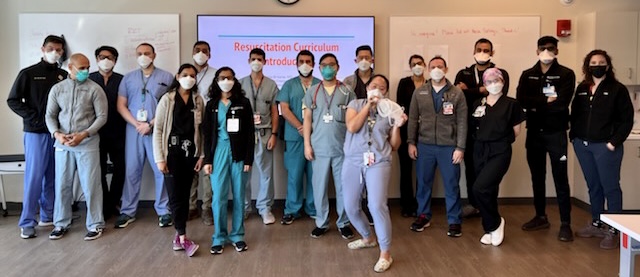
- Simulation and Integrated Learning (SAIL) Institute: SAIL is a 25-million-dollar simulation center allowing residents to sharpen their procedural and clinical skills prior to beginning their training as well as during their residency.
- Point-of-Care Ultrasound: We offer two ultrasound rotations (one at UIH and one at the VA), which provide clinical training in bedside ultrasound provided by experienced faculty, as well as serving as a procedure service. We are one of ten programs in the country to offer an Ultrasound Fellowship.
- Clinical Leaders and Academic Scholars (CLASS) Fellowship: UIC has a unique one- or two-year fellowship to train graduates of the program in additional skills to become future life-long educators.
-
Diversity, Equity, and Inclusion
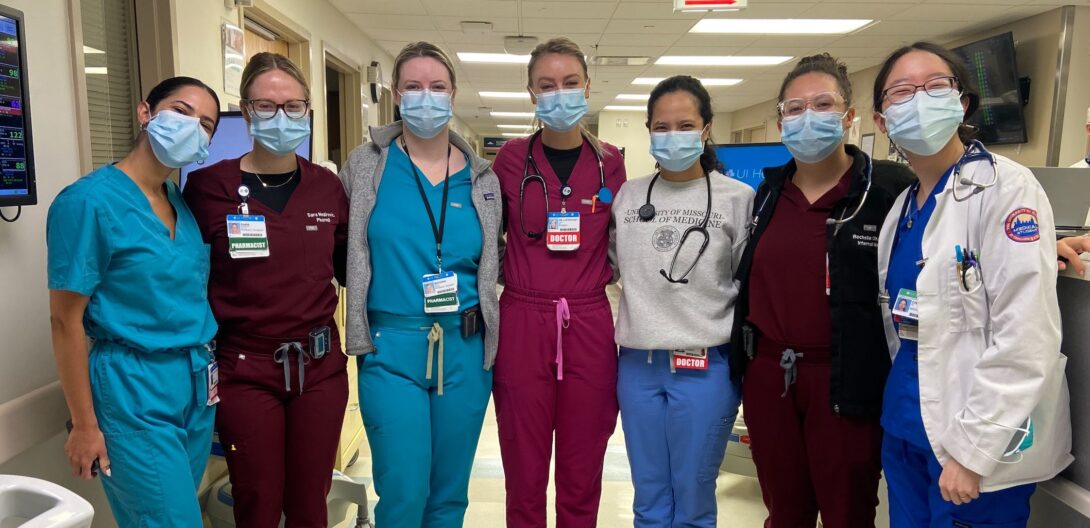
- Within our Family: With one of the highest overall scores on U.S News and World Report’s ethnic diversity index, UIC’s student body is one of the most diverse in the nation. This diversity is reflected in our resident complement as well as the patient populations we serve. Currently 30% of our residents are doctors that are underrepresented in medicine.
- Serving the Underserved: We are passionate and dedicated to providing health equity to our community. Residents participate in many charity events, COVID testing and treatment for marginalized individuals, STI outreach clinics that provide free testing, counseling and treatment, and the Chicago Street Medicine program that cares for the undomiciled at their respective locations.
- Department of Medicine Inclusion Council (DOMIC): Leadership and membership in DOMIC are from diverse backgrounds with a mission to advance the diversity and inclusion of faculty and trainees through education, advocacy, scholarly activities, mentorship, and networking. We feel that diversity drives innovation and promotes health equity. DOMIC sponsors many educational activities including our anti-racism curriculum and education on unique aspects of care for the LGBTQA+ community. We have an Associate Program Director specifically dedicated to our Diversity, Equity and Inclusion initiatives within the residency.
- Bias Reduction in Internal Medicine (BRIM): We were one of the first medicine programs in the country to train our residents in BRIM. These workshops provide education and awareness of our unconscious biases in order to name them, tame them, and create a diverse and inclusive environment for our health care professionals and our patients.
- Women Trainees Interest Group (WTIG): Founded by our IM residents, WTIG is a group created for all women trainees from all programs at UIC. Their mission is to improve the health of underserved women in the community through advocacy and outreach, create mentorship opportunities for women trainees, and enhance education about Women’s Health within our institution.
-
Wellness and Humanities Initiatives
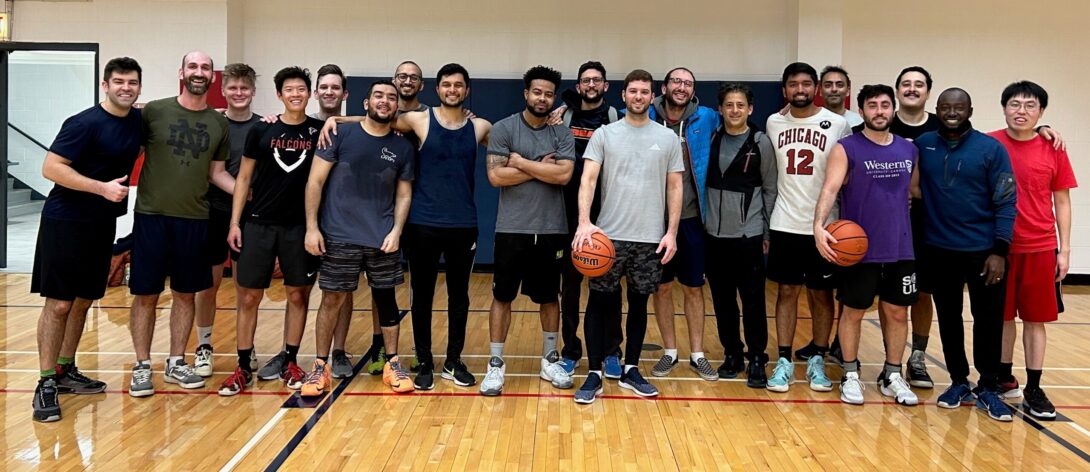
- Structural Changes: Numerous initiatives have been implemented to ensure resident wellness, including structuring work hours to assist with healthy time away from patient care, a 4+2 curriculum model for senior residents, an Associate Program Director specifically dedicated to resident wellbeing, bonus time off in the form of wellness days and two Step 3 days, a rigorous backup policy that ensures a resident can immediately obtain coverage should they feel less than capable of excellent patient care for any reason, and a liberal Family and Medical Leave policy that gives abundant paid time off for trainees starting or growing a family or if there is a personal or family illness. The Program Director has significant, protected administrative time to meet with residents individually and residents are notified monthly regarding his office hours.
- Wellness Committee: This committee is composed of residents, chief residents, and faculty who seek to assess and promote well-being throughout the year. We not only organize enjoyable events, but seek to help with professional development, engage residents in community service, and have initiated Wellness Ambassadors.
- Firm Leaders: Each residency year has firm leaders who meet regularly with their colleagues as well as program leadership to assure easy communication of new ideas and recommendations from the residents in a frequent and safe space.
- Annual Retreats: Every year, each residency class gets protected time off to attend an offsite retreat for wellness activities and feedback sessions with program leadership.
- Art Institute of Chicago: The program sponsors a guest lecture from the Art Institute of Chicago on the Art of Observation, as well as a visit to the Institute focusing on how developing skills of observation can enhance the practice of medicine.
-
Beyond Residency
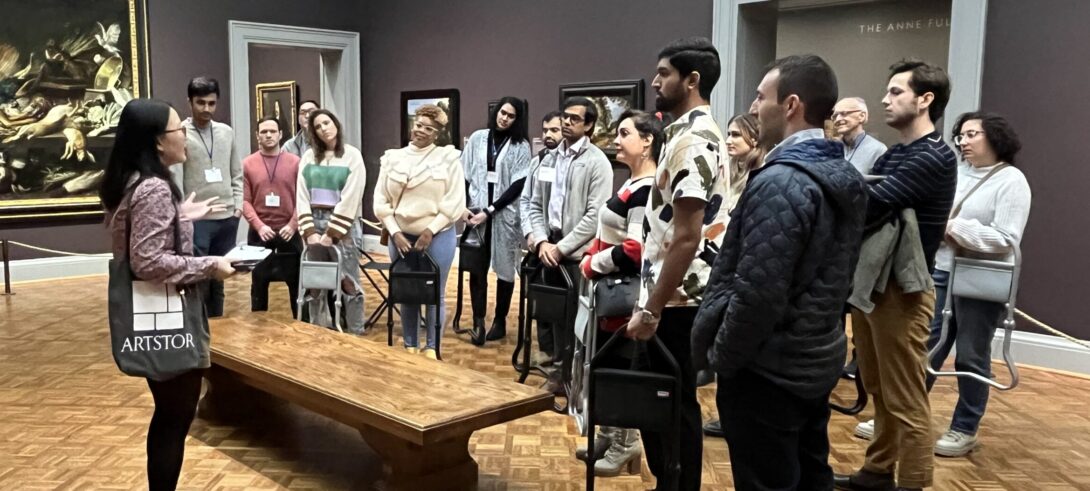
- Fellowship Acquisition: Numerous structures are in place to foster matching into competitive fellowships. There are numerous workshops on topics such as interviewing skills and CV preparation, fellowship panels where faculty and fellows discuss their journeys and provide guidance from it, and individual mock fellowship interviews conducted by the Program Director. Over the last decade 97% of graduates seeking a fellowship attain it. In 2022, 46% of residents matched at the first choice on their match list, and the average spot down on their list was 1.8.
- Academic Internal Medicine: Over the last 8 years, 30% of our graduates entered careers in general internal medicine, the majority of which become academic hospitalists.
- General Medicine Career Planning: The program arranges career planning panels for residents interested in hospital medicine and primary care with guidance on the application process and timeline, and panel of recent graduates from our program to share their experience and answer questions.
-
Other Unique Features

- Clinical Teaching and Feedback Didactics: During a third-year rotation, faculty-led sessions give residents the opportunity to learn additional teaching skills (e.g., 1-minute preceptor, how to deliver a chalk talk) and how to give feedback, as well as the chance practice these skills with residents and medical students. The Department of Medical Education also offers a Resident As Teacher experience (RATe) for residents from all specialties to participate in.
- Step-Up Program: An evidence-based curriculum allows PGY-1 residents to step-up into the role of senior resident at the end of intern year with supervision and feedback provided by their PGY-2 resident and attending in order to feel more comfortable with the transition to a senior.
- Narrative Medicine, Street Medicine, Reflective Practice rotational experiences
- Department of Medicine Book Club
- Internal Moonlighting: PGY-3s have several opportunities to moonlight in order to gain additional inpatient experience with pay.
- School of Public Health: The campus is home to one of the best schools of Public Health in the country. Residents are able to work toward a Certificate degree or a Master of Public Health degree and tuition is waived if residents attend onsite classes.
- Sports and Fitness Center: Our newly renovated Sports and Fitness Center is located on campus just a block away from each of our inpatient hospitals, providing easy access to wellness activities before, during, or after residents’ patient care responsibilities.
- Chicago: We are located in an incredible city rich in world-class museums, architecture, and restaurants, and with multicultural neighborhoods and events. Most residents live within 15 minutes of campus and have ample time to explore the city. To further enjoy the city, the program provides free tickets to the Chicago Bulls, the Tony award-winning Steppenwolf Theater, and Hubbard Street dance company.